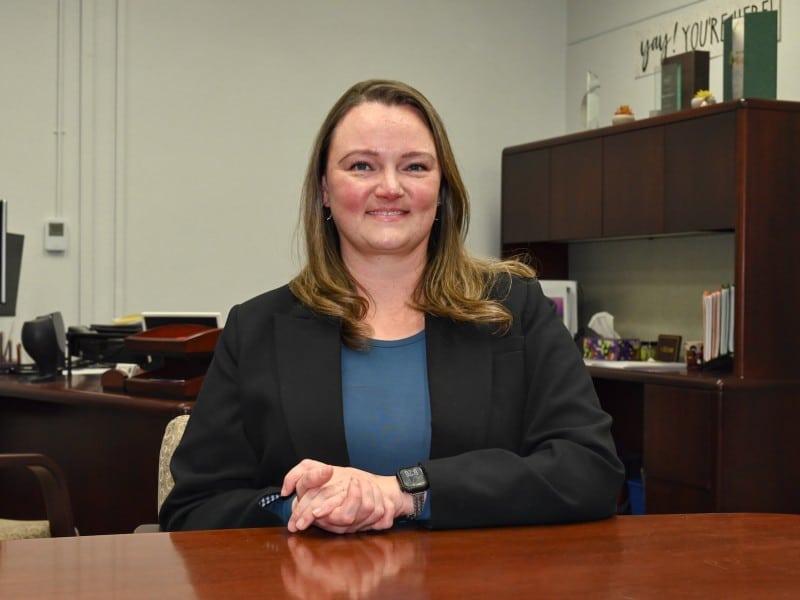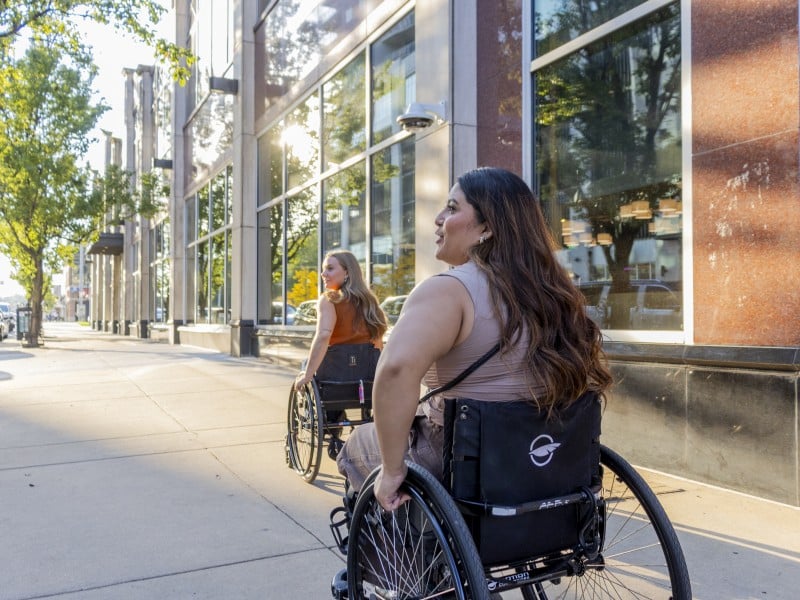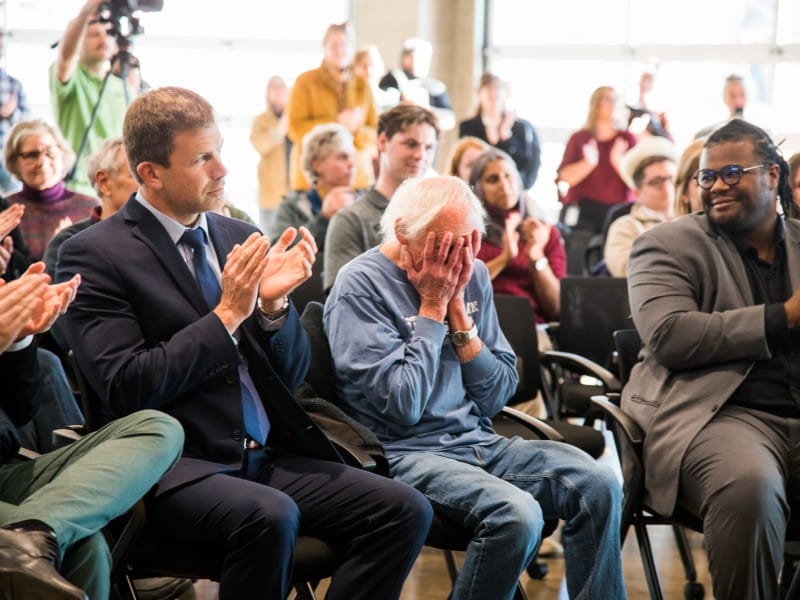The second session of training for Black entrepreneurs is under way in Kalamazoo
Sisters in Business Michigan and Black Wall Street Kalamazoo are working to increase the access African-American entrepreneurs and their businesses have the funding and training they need.

Editor’s note: This story is part of Southwest Michigan Second Wave’s On the Ground Kalamazoo series.
Data indicates that African-American and minority-owned businesses are disproportionately denied business funding and resources.
“Statistically Black Businesses receive less funding and business support than businesses owned by other demographics,” Nicole Parker, co-founder of Sisters in Business Michigan, says in a press release.
So her organization, partnered with Black Wall Street Kalamazoo, is working to increase the access African-American entrepreneurs and their businesses have the funding and training they need. On April 15, the Kalamazoo-based organizations launched the second session of their Black Entrepreneurship Training Academy.
The five-month cohort-based program immerses its participants in six business development modules that are facilitated by experts. They include such things as understanding business structure and managing business finance, as well as developing a business plan and marketing.
Small business owners receive business coaching and participate in a business pitch competition. Upon completion of the coursework, each is provided a $5,000 grant to help support their business needs. And the winner of the pitch competition receives an additional $5,000.
Sisters in Business Michigan is a networking and mentoring organization started in 2017 by Parker and her sisters Alisa, Tiffany, and Teleshia to support business-minded local African-American women. Black Wall Street Kalamazoo is an organization started online by Nicole Triplett in 2018 to allow members of the African-American community to try to build wealth and prosper by becoming more aware of Black businesses and patronizing them.
BETA was developed by the organizations and launched in April of 2021 to equip, support, and provide resources to African-American entrepreneurs.
New businesses that are part of the 2022 BETA cohort range from those involved in beauty and skincare to those involved in confections and construction services.
Among them is: Aggies Sassy Scrub Shop, a seller of fashionable medical scrubs and nursing uniforms operated by Agnes Nthusa; Kolis Kreations, a maker of hand-crafted desserts and treats operated by Nikkole Hegler; and Xaymaca LLC, a construction inspection and real estate development firm operated by Ogden Wright, a graduate of Western Michigan University and Kalamazoo College (with degrees in construction engineering and physics, respectively).
The others, along with their primary owners/operators, are:
• Aunt Nay’s Cookies and Treats (Toya Williams)
• Beauty Queen (Raygine Williams)
• Big Bear Skin Care (Jordan Johnson)
• Cima’s Kitchen (Jacima White)
• Colorful Roots LLC (Brandy Petersen)
• DJ Skin Studio (Danitra Johnson)
• Lonny Bandz (A-Lexis Ayers)
• Luxury Sips Mobile Bar Tending (Amari Worthy)
• Soul Artistry LLC (Yolonda Lavender)
• Soular (Natalya Norris)
• Rare Wisdom Hair and Beauty (Ranisha Haynes)
The lack of support for minority-owned businesses became more evident at the start of the COVID-19 pandemic, Parker says, as many of them “had been in survival mode for years prior to the pandemic.”
Data from the Federal Reserve indicates there is a funding gap between the financing received by White small-business owners and the financing (or lack of financing) received by Black, Latinx, and Asian business owners. According to the information released by the Federal Reserve in 2020, BIPOC (Black, Indigenous, and People of Color) business owners:
• Receive less business financing and at higher rates;
• Are subjected by banks to more scrutiny that White business owners;
• Are approved for loans less often by online lenders than White business owners;
• Receive a small fraction of the outside equity White startup companies receive;
• And are discouraged from applying for loans.
It also suggests that racial disparities exist even when controlling for factors such as creditworthiness.
“The other issue we noticed,” says Triplett, of Black Wall Street, “was that many businesses owned by Black people were not prepared to take advantage of some of the new resources that were being established to help businesses over the course of the pandemic.”
That created a great opportunity to provide support for those businesses while creating access to seed funding, she says.
BETA has received support from various sources in the community. Among them is; The City of Kalamazoo, United Way of the Battle Creek and Kalamazoo Region, LISC, the Irving S. Gilmore Foundation, the Stryker Johnston Foundation, The Kalamazoo Community Foundation, and Chase Bank.
More information about the academy is available here.
According to information provided by Triplett and Parker, BETA hopes to provide industry-specific programming in the future and connect businesses to suppliers globally. It also hopes to provide each participant with $10,000 in funding in the future.
BETA graduates are seeing some success. The program is highlighting the success of academy graduate Doreen Gardner, owner of Papa’s Peanut Brittle. She recently won the Catalyst University Maker’s Mart Pitch Competition sponsored by Southwest Michigan First and has expanded her product sales into several Kalamazoo-area stores. It is also recognizing DeMargeo White, whose Huey D’s Goodies have seen an increase in sales and are expanded into stores across the United States.
Read about Papa’s Peanut Brittle.
Read about Huey D’s Goodies.
Supporting Black Business means supporting and growing the overall economic development of the community, according to Triplett and Parker. It has also meant great new support for women-owned businesses. The first BETA cohort provided training for 10 businesses, nine of which were owned by women.
“Black women, for example, are statistically the fastest growing business demographic,” Parker says. “By supporting and funding these businesses we are creating jobs and expanding the economic stability of our communities overall.”















